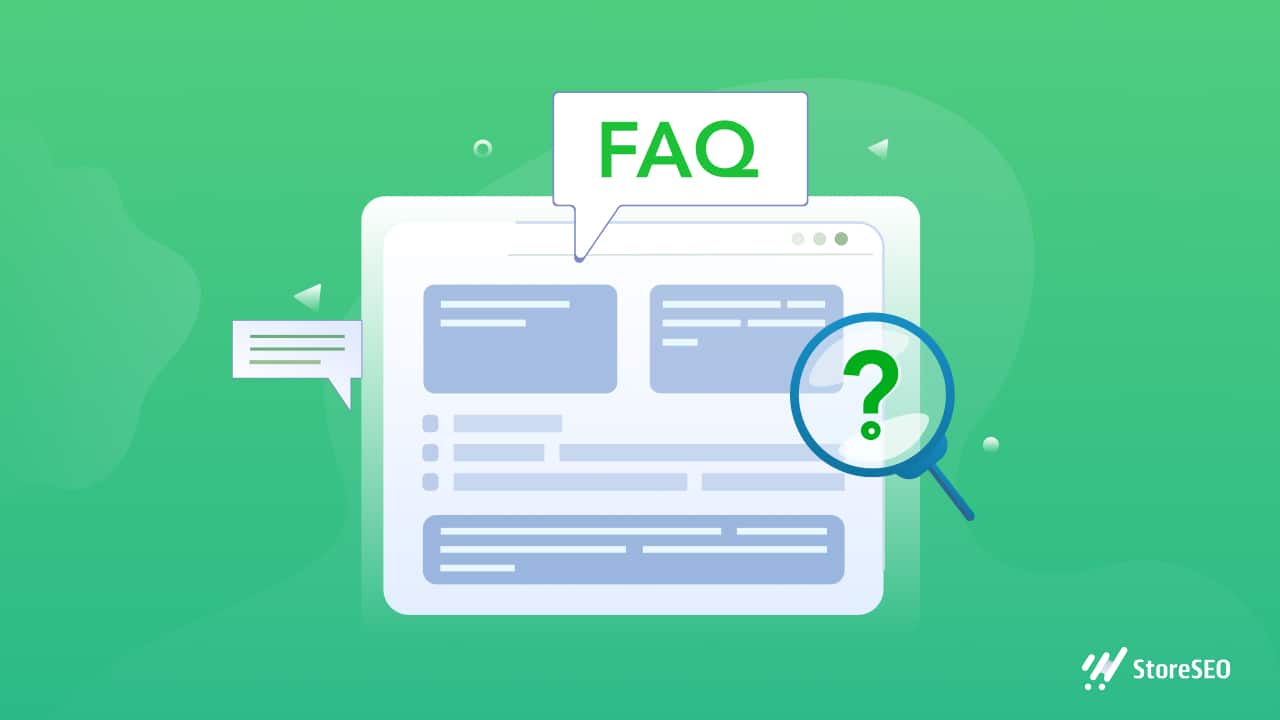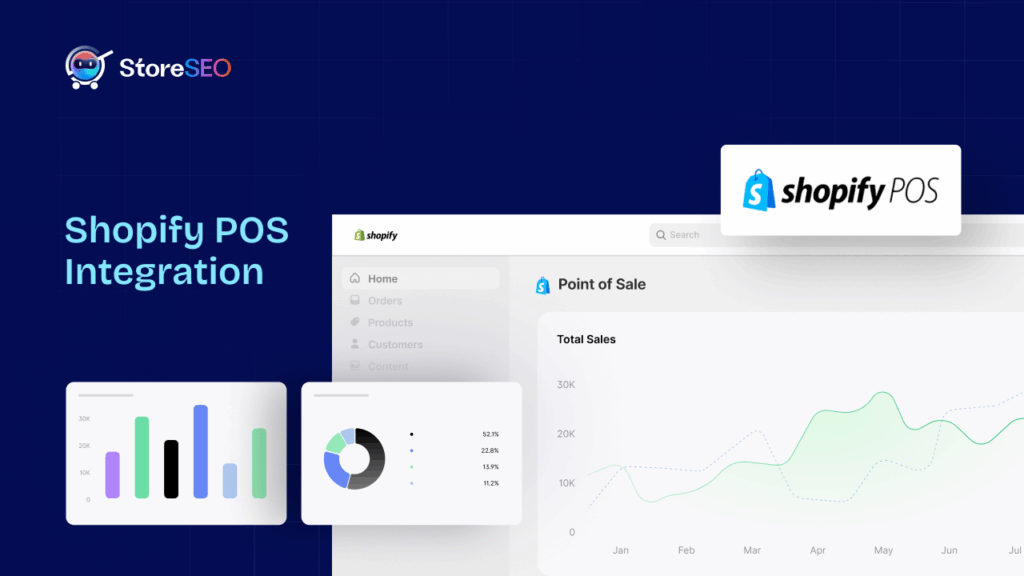Are you planning to enhance your online store’s SEO score? Then FAQ schemas can give you a great boost. But how do you add FAQ schemas in the best way? Today, we will show you how to do it fluently. Let’s hop in.

What Does FAQ Schema Markup Mean?
FAQs (frequently asked questions) are a collection of common queries that website visitors might have about a company or website. These inquiries assist businesses in responding, reacting, and foreseeing the requirements of their target market. The main goal of creating an FAQ page is to answer audience questions and solve their problems.
In contrast, schema markup is the code that enables search engines to scan your website’s content more quickly and display it more favorably in search results. Search engines can provide rich results or snippets when they understand the relationships and meaning behind items. Schema, in essence, gives context to a hazy webpage.
A markup language called FAQ Schema is inserted into the HTML code of a website to provide details about frequently asked questions (FAQs) and their solutions. Simply put, by indicating that this content will be presented in a question-and-answer format, you are informing search engines of this. If your website’s FAQ pages are properly marked up, they can be highlighted for rich snippets in the search results, just like the FAQ shown below.

Connection Between SEO & Adding FAQ Schema Explained
SEO has become a crucial component for websites. It has a direct impact on your website’s revenue and sales. However, will adding FAQ schema boost SEO? Let’s find out.
Adding FAQ schema is important for SEO because it can help improve the visibility of your website in search results and enhance the user experience. Here are some reasons why:
Helps To Retrieve Structured Data
FAQ schema provides search engines with structured data about the content on your website. This can help search engines better understand the information on your site and display it more prominently in search results.
Increased Website Content Visibility
By using the FAQ schema, your website may appear in featured snippets, which are the highlighted boxes at the top of search results that provide quick answers to users’ questions. This can increase the visibility of your website and potentially drive more traffic.
Enhancement Of User Experience
Adding an FAQ schema to your website can enhance the user experience by providing quick answers to common questions. This can reduce bounce rates and increase engagement.
Ranks Top In Google Preferences
Google has indicated that it prefers websites that use structured data, including FAQ schemas. Implementing it can improve your chances of ranking higher in search results.
Ensures Authority Is Established
By demonstrating your expertise and providing helpful information through the FAQ schema, you can establish your brand as an authority in your industry. This can help build trust with your audience and increase brand awareness.
5+ Ways FAQ Schema Can Amplify Your SEO
Yes, you’ve got your answer. FAQ schema is essential to ranking higher in SEO. So how can you use the FAQ schema to its utmost potential in order to improve your search engine rankings? To find your answer, start reading.
Using FAQ schema can significantly amplify your SEO efforts. Here are seven use cases that demonstrate how to leverage FAQ schema for SEO benefits:
Implementing Structured Data Markup
Start by adding structured data markup to your FAQ page or individual FAQ sections on relevant pages. Use schema.org markup or JSON-LD format to define each question and its corresponding answer. Make sure to include all the necessary properties, such as “name” for the question and “acceptedAnswer” for the answer.

Optimizing For Relevant Keywords
Conduct keyword research to identify commonly asked questions related to your industry, products, or services. Incorporate these targeted keywords naturally within the FAQ content and use them in your question titles. This helps search engines understand the relevance of your content to specific queries.
Formatting Questions Clearly
Structure your questions in a concise and clear manner. Use proper heading tags (e.g., <h2> or <h3>) for each question to indicate their importance and hierarchy. This formatting makes it easier for search engines to recognize the questions and improves the user experience.

Providing Detailed & Relevant Answers
Craft well-written answers that directly address the questions asked. Ensure the answers are accurate and informative, and offer value to users. Including relevant keywords in your answers can also help with SEO optimization.
Utilizing Schema Markup Features
Take advantage of the additional features offered by the FAQ schema. For example, you can use “suggestedAnswer” to provide alternative answers or “mainEntityOfPage” to specify the URL of the page containing the full FAQ content. These features enhance the structured data and provide more context to search engines.
Monitoring Featured Snippets
Keep track of featured snippets in search results. If your FAQ content is selected as a featured snippet, it can significantly boost your visibility and click-through rates. Optimize your content to increase the chances of being selected by providing concise and comprehensive answers.
Updating & Expanding FAQ Content
Regularly review and update your FAQ content to address new or trending questions in your industry. Keeping your FAQ section relevant and up-to-date can attract more organic traffic and establish your website as a go-to resource.

Remember that implementing FAQ schema alone is not enough to guarantee SEO success. It should be part of a comprehensive SEO strategy that includes other optimization techniques such as quality content creation, link building, and on-page SEO best practices.
By using FAQ Schema effectively, you can enhance your website’s visibility in search results, attract more targeted traffic, and improve the overall user experience, all of which contribute to amplifying your SEO efforts.
Check Out These FAQ And SEO Blogs
🔰 5 Best Ways To Use Google Trends for SEO Research
🔰 The Top 8 Self-Learning SEO Sites That Can Help You In 2024
🔰 Top 12 Different FAQ Page Examples And How To Design Your Own
🔰 How To Write An Effective FAQs Page- With Examples
Win At SEO With FAQ Schema Markup
Implementing FAQ schema can amplify your SEO efforts by enhancing search engine visibility, improving click-through rates, optimizing for voice search, providing a better user experience, boosting website authority, and increasing mobile visibility.
Hope you have found this article helpful, and don’t forget to subscribe to our blog for more.








